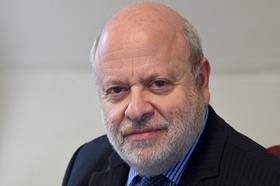This is the week of the UK-EU reset. Brexit is not to be relitigated. But I admit that I was moved when a tinny version of Beethoven’s ‘Ode to Joy’ came over a loudspeaker system last week, and over 100 lawyers from around Europe stood up to signal respect for shared values.

This was at the plenary session of the Council of Bars and Law Societies of Europe (CCBE) in Bordeaux.
I was even more moved when the same lawyers stood as one later, and applauded the bravery and values of the President of the Istanbul Bar Association, İbrahim Özden Kaboğlu, who had just addressed us via video-link from Istanbul. Professor Kaboğlu was recently dismissed from his position as President of the Istanbul Bar Association, along with the other members of the board of the bar, by a court in Turkey.
This was in consequence of the bar’s issue of a statement condemning the alleged targeting and deaths by drone strike of two journalists covering Syria, and asking for both an effective and impartial investigation into the circumstances and respect for international humanitarian law.
There is a criminal hearing against Professor Kaboğlu scheduled for next week at the Marmara (Silivri) high-security prison, on charges of ‘terrorist propaganda’ and ‘public dissemination of misleading information’. Various European bars will be in attendance as observers. An excellent report by a representative of the Law Society to a meeting called by the Istanbul Bar Association following the dismissal of its president and board can be read here – the Law Society has been strong in its support of its fellow legal professionals under attack in Turkey.
That wasn’t the only applause at the meeting. There was also celebration for the first signatures by countries, including the UK, for the Council of Europe’s new Convention on the Protection of the Profession of Lawyer, and particularly celebrating the role played by various CCBE members in seeing the convention through from an embryonic idea to its current ratifications. We heard from a representative of the Council of Europe, as well as from CCBE delegations, about how countries beyond Europe are also interested in signing up, and how they can do so.
Read more by Jonathan Goldsmith
It is no surprise that the current state of the rule of law in the United States was on the plenary agenda, because it has an impact on European law firms. European bars are concerned that their own law firms may be impacted, for instance, by the attack on diversity and inclusion. We heard that the German and Dutch bars have issued guidance to their members.
The Dutch bar, the Nederlandse orde van advocaten (NOvA), has recently issued a memorandum ‘intended to support lawyers in continuing to function as independent providers of access to justice, even in times of political and societal pressure’. Among many similar sentiments in the statement, it reminds Dutch lawyers that they are ‘not accountable to third parties, including the government, for how they perform their work, whom they represent, or whom they employ’ nor are they ‘permitted to make promises, issue statements, or enter into agreements that compromise or threaten to compromise independence … regardless of whether such statements relate to the clients or (the type of) cases a lawyer does or does not handle, the structure of the law firm, or the manner in which cases are managed (including, for example, statements related to Diversity, Equity & Inclusion).’
How could such a meeting not touch on AI? News of the Solicitors Regulation Authority’s recent regulation of the first AI law firm has spread fast to European bars, and it was mentioned both during the Plenary and also in informal discussions with other delegations.
And then: should the CCBE itself use AI for minutes and reports? There was caution from delegations about having an AI participant in meetings. You may have seen AI’s eerie presence in video meetings you have yourself attended, listed as another participant and silently recording everything. What happens to the data it swallows – who owns it, is it used to train the AI further, have all parties consented, what about confidential information, and so on?
There were items which did not relate directly to our UK interests because they touched on EU legislation, but which nevertheless have echoes for us. For instance, when discussing the Return Regulation, an EU proposal for establishing a common system for the return of third-country nationals staying illegally in the EU, there was a discussion of return hubs, which are all the rage nowadays, including with our own government. There were many questions raised against hubs, but maybe the central one for our profession is: how do those returned to a hub have access to a lawyer once there?
At a time of division and polarisation, much unites us as lawyers, and the CCBE Plenary was an occasion to witness such unity repeatedly.
Jonathan Goldsmith is Law Society Council member for EU & International, chair of the Law Society’s Policy & Regulatory Affairs Committee and a member of its board. All views expressed are personal and are not made in his capacity as a Law Society Council member, nor on behalf of the Law Society































3 Readers' comments